As a school in a remote area in Phu Quoc Special Zone (An Giang), Bai Thom Primary - Secondary School has proactively implemented digital transformation with many innovations, from integrating digital ethics education to applying artificial intelligence (AI) and technology platforms into teaching.
Promote self-learning spirit from digital resources
Ms. Le Thi Bich Phuong, Vice Principal of Bai Thom Primary and Secondary School, commented that Resolution 71-NQ/TW of the Politburo has set out the requirement to promote the role of students as subjects and build a culture of lifelong learning.
In the implementation process, digital transformation of education plays an important role by creating a technology platform and a rich digital science library, which is a condition to promote self-study and realize lifelong learning.

Students at school during extracurricular hours. Photo: Bai Thom Secondary School
At school, teachers integrate digital ethics education into the IT subject, guiding students to behave civilly online, respect copyright and be honest when using AI.
Students are encouraged to use digital libraries, participate in online forums, and carry out group projects using technology tools. Through this, they gradually develop the habit of self-study, develop creativity and responsibility - core skills of future digital citizens.
According to Ms. Phuong, digital transformation and AI application in education are inevitable trends. Resolution 71-NQ/TW has opened up strategic directions, but success depends on the initiative, creativity and efforts of each school and each teacher in practical implementation.
Efforts to overcome difficulties
Bai Thom Primary and Secondary School has 3 campuses in Bai Thom, Da Chong, Rach Tram. The school has a total of 540 students, 26 classrooms and 44 teachers.
The school has many difficulties in terms of infrastructure and human resources. The three schools are more than 7km apart, while the number of computer rooms and equipment is limited.
Most of the computers are old, the configuration does not meet the requirements, and the Internet connection is weak, causing many technology-based lessons to not be as effective as expected.
Although the teaching staff actively participated in training and used many support tools such as ChatGPT, Canva, Google Form or Quizizz, they still encountered many obstacles due to heavy workload, many of whom had to teach cross-subjects.
In particular, some students do not have personal smart devices, so teachers are forced to lend them their computers or phones to support them.
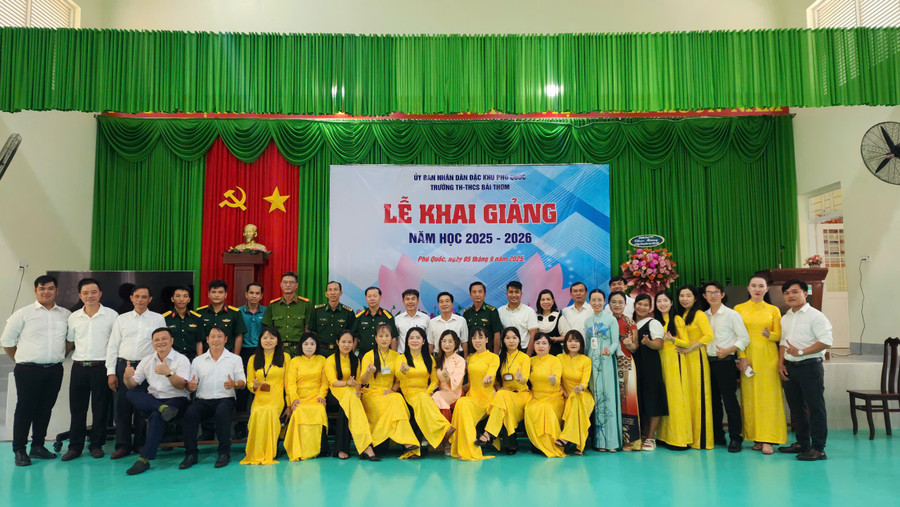
Teachers at Bai Thom Primary and Secondary School (Phu Quoc Special Zone) at the recent opening ceremony. Photo: Bai Thom Primary and Secondary School
Ms. Le Thi Bich Phuong said that to overcome this situation, the school needs to add more staff to reduce pressure on teachers, and at the same time invest in synchronous facilities from computer rooms, projectors, interactive boards to a stable Internet system.
The school's Vice Principal emphasized: "Teachers really need support from policies to have time to learn and research new tools, not just follow a tight teaching schedule."
Innovation in teaching methods
Digital transformation in education is not just about equipping technological equipment, but also about profound innovation in teaching methods.
AI has contributed to personalizing learning, supporting data analysis so that teachers can clearly grasp the abilities of each student. However, to ensure fairness and transparency, teachers need to play the role of the final decision maker in the assessment process.
"AI should only be a supporting tool. To achieve appropriate results, teachers need to provide clear, detailed input data and make multiple adjustments. Machines cannot completely replace pedagogical responsibility in grading," Ms. Phuong emphasized.
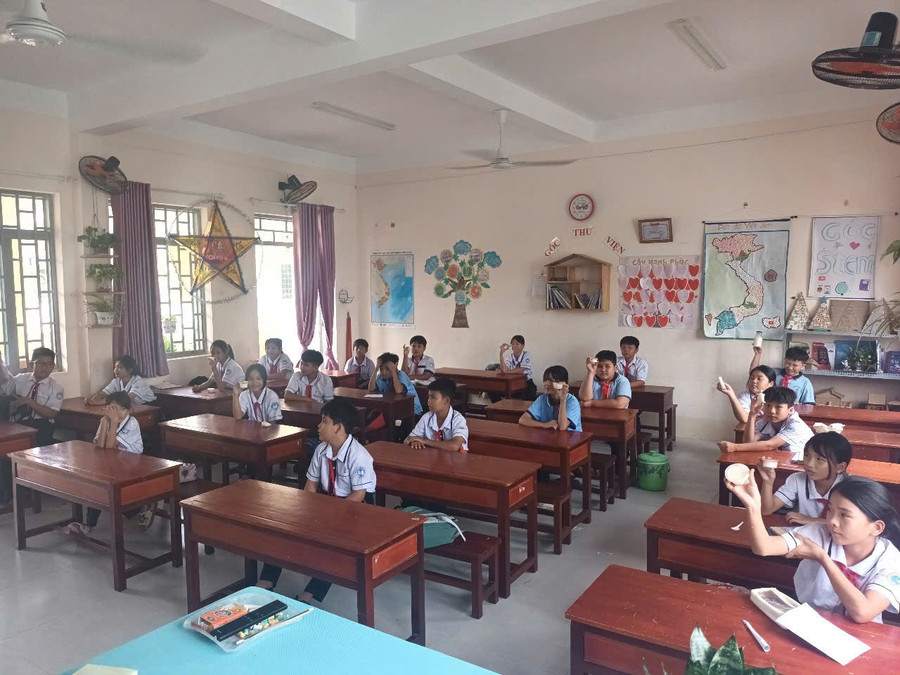
Digital transformation and AI applications help teachers at the school teach better. Photo: Bai Thom Secondary School
AI opens up opportunities for innovation in assessment and evaluation, but it needs to be used properly, as a companion and support.
At the primary and secondary school levels, many subjects can take advantage of technology. For example, in Mathematics, AI helps create questions and analyze learners' abilities; in Foreign Languages, AI helps practice listening and speaking skills through interactive software; and in Information Technology, students develop digital thinking and basic programming knowledge.
As a teacher directly teaching Information Technology, Ms. Phuong shared: in addition to regular school hours, teachers in the school also use platforms such as Quizizz, Google Classroom or K12 Online to assign and manage homework, helping students consolidate their knowledge.
In particular, students are encouraged to present their learning products through Canva, PowerPoint or video clips, both learning and practicing creative and presentation skills.
The school's Vice Principal emphasized: "It is important that teachers know how to choose the right tools, and at the same time guide students to clearly understand the purpose of using technology to serve learning, and not let technology completely replace their independent thinking."
Source: https://giaoducthoidai.vn/nghi-quyet-71-nqtw-nang-tam-vai-tro-giao-vien-trong-chuyen-doi-so-post748404.html



![[Photo] General Secretary To Lam chaired a working session with the Standing Committee of the Party Committee of the Ministry of Foreign Affairs](https://vphoto.vietnam.vn/thumb/1200x675/vietnam/resource/IMAGE/2025/9/15/f26e945b18984e8a99ef82e5ac7b5e7d)



![[Photo] President Luong Cuong attends the opening ceremony of the new school year at the National Defense Academy](https://vphoto.vietnam.vn/thumb/1200x675/vietnam/resource/IMAGE/2025/9/15/c65f03c8c2984e60bd84e6e01affa8a0)



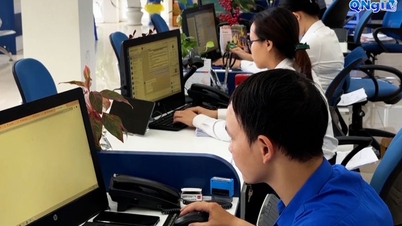





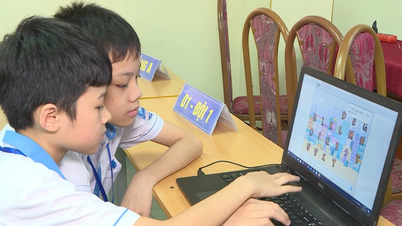
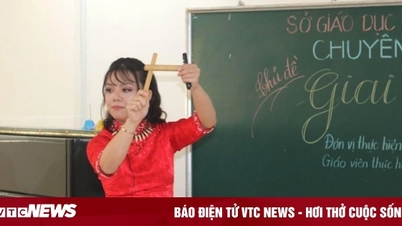





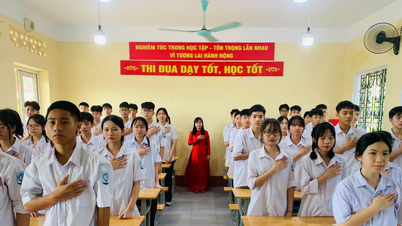







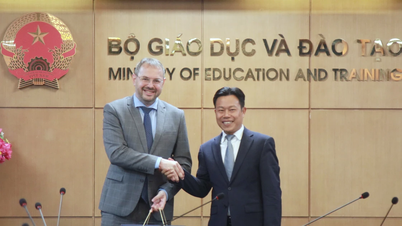



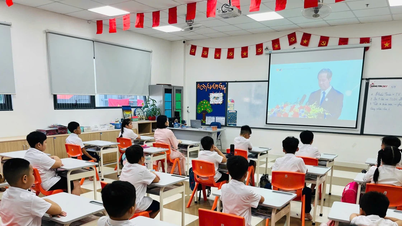
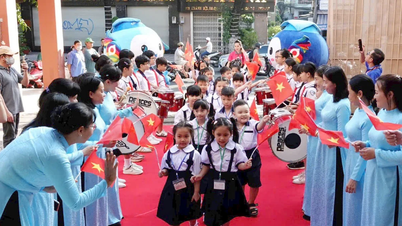
![[Photo] General Secretary To Lam attends the 80th Anniversary of the General Department of Defense Industry](https://vphoto.vietnam.vn/thumb/1200x675/vietnam/resource/IMAGE/2025/9/15/fb8fd98417bb4ec5962de4f7fbfe0f6a)

























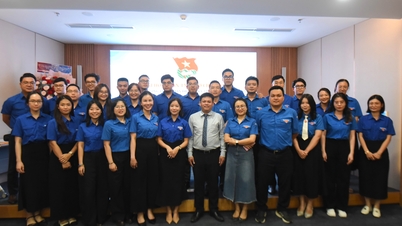











![[Live] Closing of the National Achievements Exhibition "80 Years of Journey of Independence - Freedom and Happiness"](https://vphoto.vietnam.vn/thumb/402x226/vietnam/resource/IMAGE/2025/9/15/de7064420213454aa606941f720ea20d)




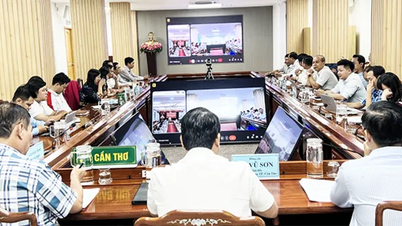


























Comment (0)